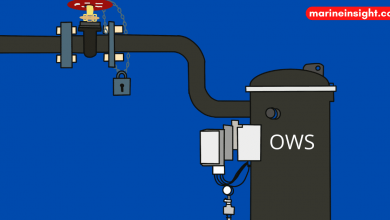Lessons From 5 Successful Shark Tank Businesses

You don’t need to be a candidate on “Shark Tank” to live the American dream or benefit from the program. With 12 seasons under its belt and with America’s wealthiest moguls spending their money on promising entrepreneurs, you can learn plenty from investors and inventors.
Here are some of the most successful products and inventions that appeared on the show, and why they were able to stand out and succeed.
1. Lumio
Max Gunawan, the inventor of Lumio, was able to impress all five investors, successfully getting generous offers from all of them. In the end, he decided to go with Robert Herjavec’s offer of US$350,000 for 10 percent of his company.
The product was a success because the inventor was passionate about it and it has a clear purpose. The product is straightforward, functional, classy, and inventive. A rechargeable lamp that unfolds and folds like a book, easy to carry, looks modern, and very handy. It caters to most consumers: students, readers, hobbyists, and art enthusiasts.
What did Lumio do right?
The product is a hit, from the design to usability. Now, Lumio and Max Gunawan continue to scale. The company’s been adding aesthetic and functional products to its line-up. The Lumio head office is situated in San Francisco, and they also have an international office in Hong Kong. In an interview, Gunawan stated that his belief is to not limit himself in one place. Expansion is key, but for it to be successful, you have to gain knowledge of the market.
He adds that Hong Kong is the perfect location for him to expand since it’s set up for the European and Asian Market. Marketing wouldn’t be a problem with today’s technology. He can simply get SEO services from Hong Kong agencies and it can target any market around the world.
2. Tipsy Elves
Ugly holiday sweaters may sound unappealing, but it’s been a golden ticket to success for Tipsy Elves. Founders Nick Morton and Evan Mendelsohn were able to get a $100,000 investment for 10 percent of their company from Robert Herjavec, and the rest is history. The company had $1 million in revenue before they went to “Shark Tank” in 2013, and they managed to make 80x that in just five years.
What made this strange business a hit?
The idea came from a growing trend the founders noticed among young adults who intentionally wear gaudy sweaters to holiday events. They saw this as an opportunity and consulted with experts before finally kick-starting their business.
One important piece of advice that they got from Shark Tank’s Robert Hervajec is to expand beyond the holiday trend. The sweaters need to be wearable year-round to weather any shift in the trend.
Tipsy Elves began to design and offer clothing and accessories not just for the Christmas season but for Hanukkah, St. Patrick’s Day, Fourth of July, and other events as well.
Sony Pictures eventually heard about their company, and signed them for a product placement deal in Seth Rogen’s movie “The Night Before.” They were also able to form a campaign partnership with Uber.
A passion for a product that brings joy to people, and a good business sense has made Tipsy Elves successful.
3. Scrub Daddy
A product that claims to make everyday cleaning easier, the Scrub Daddy is a smiley-faced sponge that can clean baked-on grimes and grease with ease. Priced at $2 on Shark Tank and about $9.99 for a pair today, it continues to expand its product line into other categories.
Inventor Aaron Krause didn’t have an easy time convincing the Sharks why his sponge costs more than the average one. Though it was an impressive invention, he had to justify why he needed his own manufacturing location to produce the sponges.
What made the investors believe in him?
His expertise in the field. His 18 years of experience running a manufacturing plant convinced the investors that he knows what he’s doing. So Krause managed to get an investment of $200,000 from Lori Greiner and now manufactures other cleaning materials aside from Scrub Daddy. In 2019, Scrub Daddy had the highest revenue out of any invention that appeared on “Shark Tank.”
4. Grace and Lace
Fashion label Grace and Lace appeared in the 2013 season of “Shark Tank” where they were able to get Corcoran to invest $175,000 in exchange for 10 percent equity.
Since the episode aired, their company has grown to over $1 million and increased to $15 million in such a short time.
Today, Grace and Lace sell more than just socks. It also offers tops, bottoms, accessories and outerwear for women of all shapes and sizes.
What can you learn from Grace and Lace?
This accidental company wouldn’t have emerged if people didn’t voice out their interest in the product. The idea stemmed from a piece of lacy socks sticking out from Melissa’s boots. She then went to her sewing machine to make a proper design for herself. From then on, random people on the streets would stop her and ask her where she got her socks. They would give her their contact information and place an order. This is where the business idea began.
Grace and Lace is also a business with a purpose, working to build orphanages in India.
5. Bombas
You’re probably thinking, out of all the products in “Shark Tank,” how did this sock business become one of the most successful ones, generating sales of $100 million a year.
The clear answer to this is that they know how to sell themselves.
Also, the stock market is huge. However, the owners were able to close a deal with a shark who wasn’t even interested in dealing with another clothing brand because he already has a number of them. Not to mention, he’s also in the sock business.
So how did they close a deal with FUBU’s founder and CEO?
In an interview with Daymond John, he mentioned the qualities that made him sign with David Heath and Randy Goldberg; that they:
- Watched every pitch that closed on “Shark Tank” and studied them
- Researched what the Sharks were looking for
- Know their strength as a business and where they can add value
- Were professionals
- Know who their customers are
As part of their company values, Bombas also donates fresh clean socks to homeless shelters, with over 5 million pairs donated across all fifty states.
“Shark Tank” has shown the public that there’s no absolute formula for success. But the road to market recognition and profitability starts with making the right choice, getting the right information, learning as much as you can about the market, reading business success stories and what they did right, and turning other people’s mistakes into teachable moments.
For more articles visit this website.






